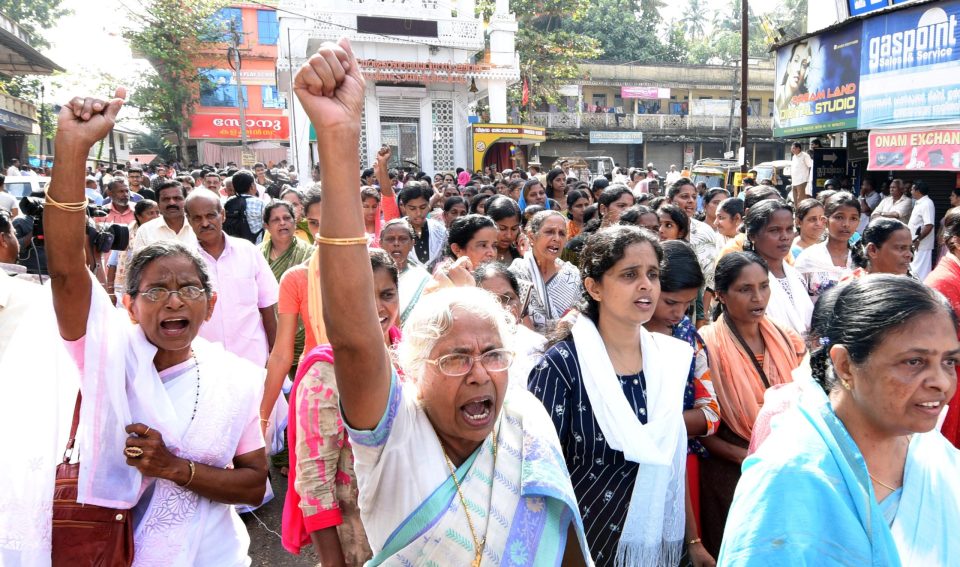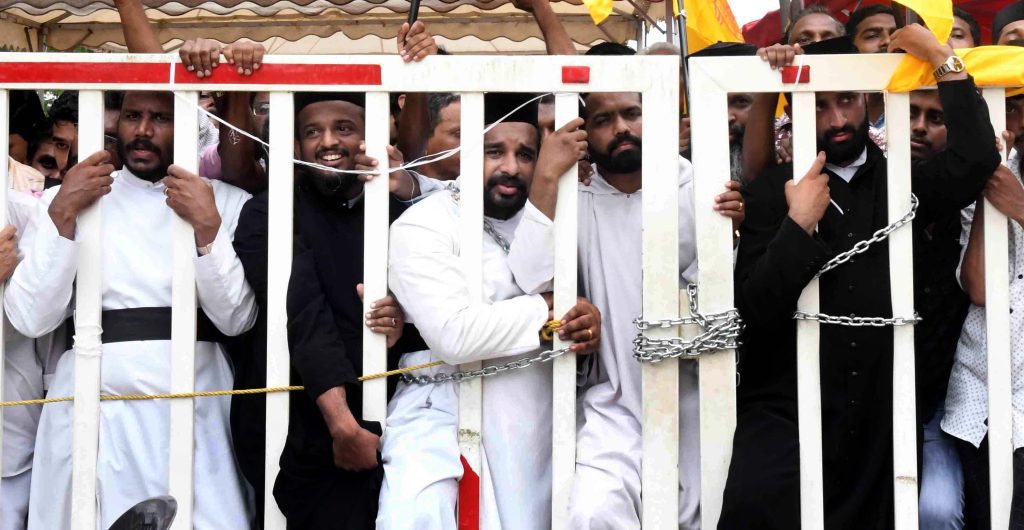
Kerala govt bid to enact law to end Malankara Church dispute sparks fresh row

The Kerala government’s move to enact a fresh legislation to end a century-old dispute involving the Malankara Orthodox Syrian Church has sparked a fresh row. While one party in the dispute has welcomed the move, the other has seen it as a devious design by the government to favour the rivals.
History of rivalry
The dispute started more than a century ago. The Malankara Orthodox Syrian Church claims to have its roots in the arrival of St Thomas, the apostle, in India in the first century. In 1912, a dispute occurred within the Malankara Church around the issue of whether it should be independent or remain under the control of the Syrian Orthodox Church of Antioch.
This dispute led to the formation of the Jacobite faction, which believed that the Malankara Church should remain in communion with the Antiochian Patriarchate. The Orthodox faction, on the other hand, argued that it should be independent.
Over the ensuing century, the rift between the two factions deepened, with both sides engaging in legal battles over church properties and assets. The conflict has even led to violence between the two communities, with clashes reported from various parts of the state.
Also read: Kerala church makes 827-kg cake to mark saint’s birthday
Over 300 churches have been shut down because of the rivalry, which has occasionally turned violent. Prayers have been interrupted and ferocious standoffs have been caused, with one faction opposing the other’s rights to worship and even bury the dead.
There was a brief period of unity between 1958 and 1970 as a result of a Supreme Court order, but it was short-lived. Despite several attempts at reconciliation, including interventions by the state government and various religious leaders, the Orthodox-Jacobite rift remains unresolved to this day.
The 2017 SC order
After decades of litigation, the Supreme Court delivered its final verdict in 2017, granting the Orthodox faction control over 1,100 churches and parishes falling under the Malankara Church, declaring that the Jacobites had no legal basis to contend for any of those churches. With this judgment, the Jacobite faction effectively lost its legal right to the Malankara Church.
However, the court order did not solve the problem. On the contrary, it went from bad to worse, as the Jacobites allegedly prevented the Orthodox faction from taking control of churches. At big churches such as Piravom and Kandanad in Ernakulam district, police had to intervene. The district collector who took control of the churches handed over the keys to the Kerala High Court.
Also read: Why Catholic groups in Kerala want ban on Malayalam play ‘Kakkukali’
The Supreme Court later came down heavily on the state government over the non-implementation of its verdict, following which the government decided to go for a new legislation. Before that, however, the government convened another couple of rounds of discussions with both parties, but with no success.
The proposed law
State Law Minister P Rajeeve has briefed the Left Democratic Front (LDF) state committee about the contents of the proposed Bill, and all the constituents reportedly agree with it. According to sources, the new law will allow each faction to exercise its right to worship in churches. The Supreme Court order will not be violated, and the proposed legislation will examine the viability of parish member referendums to determine who owns the various churches.
Additionally, a committee authority led by the district collector will be set up to monitor compliance with the regulations across all churches in the Malankara archdiocese. The new law will also permit the two factions to alternately perform the holy mass in accordance with their respective traditions.
The draft Bill, which was formulated based on a report submitted by a committee led by former Supreme Court judge KT Thomas, was put out for public discussion. “Around 14 lakh people from different faiths expressed their views, with a vast majority of them favouring the Bill,” said Geevarghese Mar Coorilose, the Metropolitan of Niranam Diocese of Malankara Jacobite Syriac Orthodox Church.

Jacobites welcome Bill
It is hardly surprising that the Jacobites welcomed the state move. According to them, the 2017 order denied 12 lakh of them access to a place of worship and a cemetery to bury their dead. The Orthodox faction has in the past objected to Jacobite followers being buried on church grounds.
“We were denied worship rights even in the churches where we are the majority. The Indian Orthodox faction forcefully evicted us, the real owners, from many churches in the wake of the court order,” said Mar Coorilose.
“This dispute cannot be solved by a court order; it should only be done through discussions outside the courtroom. Not only us, the entire society and now the government have realised that. That is why the government has taken the initiative for a new legislation, and we are thankful to Chief Minister Pinarayi Vijayan,” Mar Coorilose told The Federal.
The Metropolitan believes that the ownership of the churches should be given to those who built it, and the right to worship for both sides should be ensured, which would bring peace between the two factions that have been on the warpath for more than a century.
Orthodox faction furious
On the other hand, the government’s move to enact a fresh law has not gone down well with the Orthodox faction, who see it as a devious design by the Left government in collusion with the Jacobite faction. They have warned the Left parties of dire consequences if they go ahead with the legislation.
On Sunday, the Malankara Orthodox Syrian Church observed a protest at all the parishes under its jurisdiction and moved a resolution opposing the state’s proposed move to introduce the Bill, which was followed up with a fasting prayer on Monday.
“This new law will only serve to erode the current state of tranquillity. This Bill aims to undermine the Malankara Church’s administrative framework, which is transparent and law-abiding. It also tries to undermine the Malankara Church’s 1934 constitution and the numerous Supreme Court rulings in favour of it,” says the resolution that was read out after the morning prayers in parishes.
Also read: CPI(M) goes ballistic over minority issues in Kerala; targets ‘Jamaat-RSS bonhomie’, CAA
The Orthodox faction has urged the state government to retract its decision to prevent tensions from escalating and avoid the need for new lawsuits.
Tightrope walk for state
MV Govindan, state secretary of the CPI(M), said the government was only trying to come up with a solution while staying within the parameters of the Supreme Court order and ensuring peace between the two factions.
He maintained that the state government did not view any party as an enemy while mediating the dispute. It is significant that the party secretary’s statement came immediately after his in-camera meeting with the representatives of the Orthodox faction.
It would undoubtedly be a tightrope walk for the government to enact the Bill with the Orthodox faction of the Malankara church, the stronger of the two factions, opposed to it.

